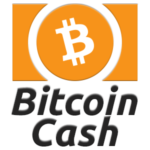 If you were holding any bitcoin in a private wallet on August 1st, an equivalent amount of Bitcoin Cash (BCC/BCH) was created under your control during the hard fork. You don’t need to rush to do anything to claim or secure it—assuming you control the private keys to your BTC, those same keys will access your forked BCC whenever you get around to it.
If you were holding any bitcoin in a private wallet on August 1st, an equivalent amount of Bitcoin Cash (BCC/BCH) was created under your control during the hard fork. You don’t need to rush to do anything to claim or secure it—assuming you control the private keys to your BTC, those same keys will access your forked BCC whenever you get around to it.
If you have a significant amount of BTC, it’s probably worth the minor headache to look into how to extract your forked BCC now. The price of BCC has risen ~200% over the past 48 hours, reaching nearly $1,000 yesterday (it’s trading around $800 now). If you have a few bitcoin, then you also have a few thousand dollars worth of BCC available to you!
If you believe the new currency has a future, then you might be content to just let it sit. If you’d rather trade your BCC for another cryptocurrency (or simply sell it), read on for the basic process.
I store all of my cryptocurrency using the basic guidelines that I describe in my wallet security guide. That means I used the official Bitcoin client (Bitcoin-Qt, now called Bitcoin Core) to generate my wallet keys, encrypted them, and then stored the encrypted keys in multiple offline USB drives in secure physical locations. There are certainly easier methods available these days, but back when I originally created my own keys, this was pretty much the only option—and it’s still a fine choice today if you’re technical enough to be comfortable moving files around.
If you also used Bitcoin-Qt or Bitcoin Core to create your wallet, and have a secure backup of the wallet.dat file containing your keys, you’re in luck because you can simply follow the steps that I took to access my BCC. If you used another method (eg: hardware wallet, etc), I’ve provided some links at the bottom of this article that you may find helpful.
Extracting your Bitcoin Cash from a Bitcore Core wallet.dat private key file
These are the steps that I followed a few hours ago—this may not be the fastest way, but it’s safe and relatively straightforward.
First, you’ll need to download and install the official Bitcoin Cash client: Bitcoin ABC. It’s a fork of Bitcoin Core, so it’ll look very familiar to you. If you’re already running Bitcoin Core on the computer that you intend to install Bitcoin ABC on, make sure that you specify a custom installation directory for Bitcoin ABC (and be aware that you’ll need about 120 GB free to fully sync the blockchain!).
After Bitcoin ABC is installed, open it and let the blockchain fully sync. Depending on the speed of your internet connection, this will take awhile (about 16 hours for me). Just let it do its thing in the background, and feel free to use the computer while the sync processes.
When the blockchain is fully synced, close Bitcoin ABC. Now navigate to your Bitcoin ABC installation directory—you should see a wallet.dat file located there. Simply replace that wallet.dat file with the wallet.dat that contains your BTC key(s). Then restart Bitcoin ABC (which may take a few minutes to verify the blockchain).
When Bitcoin ABC opens again, you should see your BCC balance (which should be equivalent to your BTC balance, assuming you haven’t made any transactions since August 1st). From here, you can use the client to send your BCC to any exchange that supports BCC (you’ll need to supply your decryption passphrase to unlock the wallet first). I used Bittrex and had no problems easily trading my own BCC for ETH and then transferring the ETH out to my own wallet. Regardless of which exchange you use, remember to do a small test transaction before attempting to send your entire balance!
When you’re finished, you can uninstall Bitcoin ABC and free up the ~120GB of BCC blockchain data from your PC. Remember to remove your wallet.dat file as well—it’s never a good idea to leave your private keys on an internet-connected computer for longer than necessary.
Extracting your Bitcoin Cash from other wallet types
If you have another type of wallet, here are some links that you might find helpful:
Trezor hardware wallet information
Ledger Nano S hardware wallet information
Using Coinomi to get your BCC from virtually any software wallet



 August 20th, 2017
August 20th, 2017  CryptoBadger
CryptoBadger  Posted in
Posted in  Tags:
Tags: 


One thing worth noting…
If you have transferred your BTC anywhere which does not accept BCC (Such as bitstamp.com) after August 1st from the original BTC account, then it will have impacted your BCC too. (I made this mistake with some BTC!)
Additionally, confirmations to transfer your BCC to Bittrex will take a long time. I’ve had 2 transactions pending approval for about 8+ hours so far